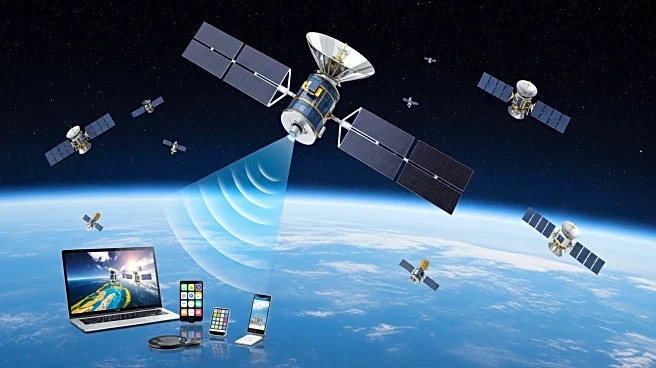What's Happening?
Europe has initiated a study to improve direct-to-device (D2D) services using satellite spectrum, coinciding with SpaceX's $19 billion deal to expand its 5G services. Thales Alenia Space leads the U DESERVE 5G project, aiming to test connectivity from low Earth orbit by 2028. Supported by France's CNES space agency, the project focuses on integrating with terrestrial networks to offer comprehensive 5G services. This initiative contrasts with other D2D projects that provide basic services like text and emergency alerts.
Why It's Important?
The development of D2D services is crucial for enhancing mobile connectivity globally. Europe's initiative aims to ensure the region is not reliant on U.S. operators as D2D becomes integral to mobile networks. SpaceX's expansion in this area highlights the competitive landscape, with companies vying to dominate the market. The integration of satellite and terrestrial networks could revolutionize mobile connectivity, offering high-speed services in remote areas.
What's Next?
The U DESERVE 5G project is set to test its connectivity capabilities by 2028, potentially influencing the global D2D market. SpaceX's acquisition of EchoStar's spectrum may accelerate its service expansion, prompting other companies to enhance their offerings. The convergence of satellite and cellular frequencies could lead to new partnerships and technological advancements in mobile connectivity.









